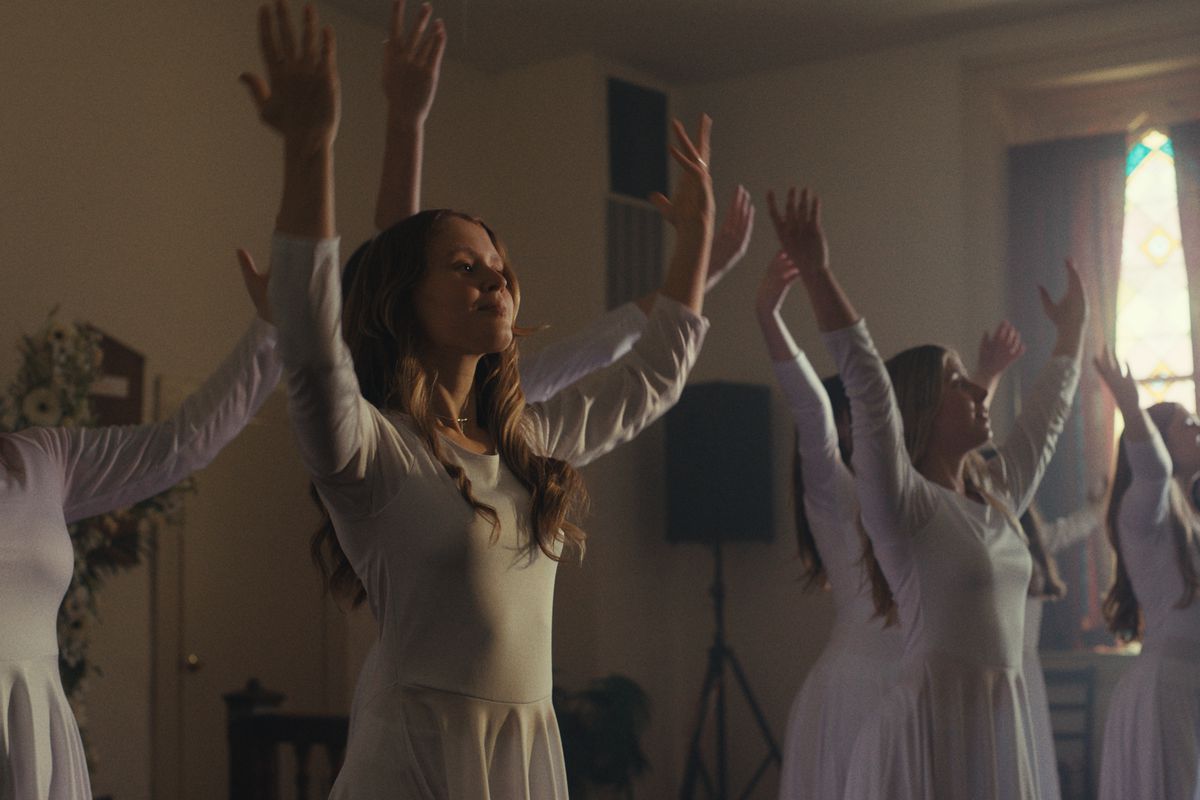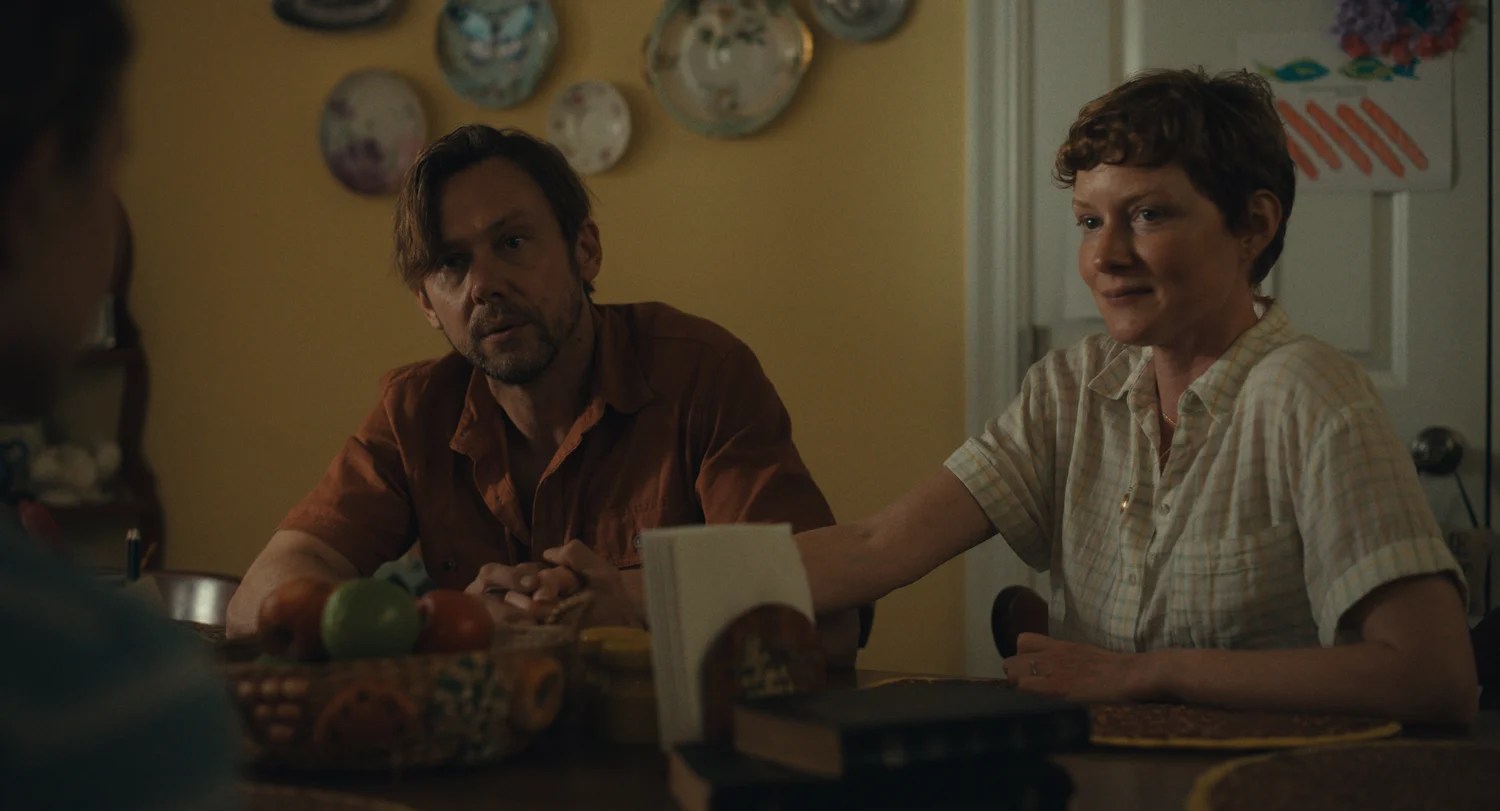


A teenage girl gives in to her hormones and to tempation and faces the fundamentalist consquences in “The Starling Girl,” an evocative, gripping and revealing drama about a strict upbringing and how it can backfire on the person being groomed.
It’s a smart and well-cast and acted debut feature from Laura Parmet, and a fine showscase for Eliza Scanlen of “Little Women” and TV’s “Sharp Objects.” In the title role, she plays 17 year-old “Jem,” whose rural Kentucky life revolves around the neo-Pentacostal “in the spirit” church which she, her three siblings and her parents attend.
She’s in the church youth dance troupe, letting her artistic passion out through PG-rated performances in modest dresses just shy of Amish.
The church is the sort of place where teen courtship is arranged via parents, so when uncharismatic bore preacher’s son (Austin Abrams) takes a shine to her, his preacher dad (Kyle Secor) and Jemima’s dad parents (veteran character players Wrenn Schmidt and Jimmi Simpson, superb) meet and make “Seventeen’s the time to start thinking about these things” noises.
As Jem has to hear out a fellow congregant’s reproach for wearing a bra that can be seen underneath her clothes when she performs, it’s her place to keep quiet and say nothing in protest.
Yes, this is a patriarchy. But the women keep the other women in line, and in Jem’s case, Mom is the one who runs their house, ensuring recovering addict/county music singer Dad on the straight and narrow.
But Jem has hormones that all her middle of the night whispers of “Out Satan, out!” can’t control. The preacher’s other son, Owen (Lewis Pullman of “Top Gun: Maverick” and TV’s “Outer Range”) has just returned from a mission to Puerto Rico. He’s the youth pastor, newly-married. And at some point Jem developed a crush on him that just won’t quit.
She starts stalking him with an earnest sense of purpose he probably notes but doesn’t acknowledge or rebuff. She angles herself into any excuse to chat with him during youth group meetings, at group outings at the fair or helping him gather firewood on a group camping trip.
This is a seemingly innocent infataution, but one with an edge. Whatever the youth pastor is thinking, he’s not saying. Jem lets us know her thoughts in her prayers.
“Lord, I come before you humbled and ashamed.”
Parmet knows her subject well enough to let us appreciate some of the positives from this insular world — ritualistic forgiveness, sharing in open church one’s failings and repentance. The limited horizons raise the stakes on the simplest things — making a dance performance “about you” and not about praise.
As in many such communities, a lot of passions are redirected towards sweet desserts.
But our writer-director’s choice of surnames is telling. “Starlings” are birds known for their vocal mimicry. Whatever some folks are getting out of all this piety and church-going, the kids are just mimicking the adults. The patriarchal power structure and power imbalance in all relationships, especially the primacy of the pastor and what the youth pastor allows/encourages to happen highlight the repressive, controlling and dangerously flawed nature of this masculine theocracy.
“Grooming” may be a loaded word for this form of indoctrination these days, but that’s some of what we’re seeing.
When the flirting crosses the line and the Kentucky spoon-bread hits the fan, Jem will learn things about herself, her lover, her church and her family that will test her faith and impact her future in the most extreme ways.
Scanlen makes Jem a hormonal, emotional and devout teen trying to make sense of everything that she’s feeling and learning jibe with the doctrine she’s absorbed and parroted all her life. She makes us see how Jem is in over her head.
Pullman’s character is more vaguely sketched-in, but he allows us to ponder Owen’s mystery and motives as he hides his cards.
And Simpson, playing a father who relishes his present and his “control,” stands out from the rest of the supporting cast. We see him lose his grip on both, a troubled man who made The Big Life Mistake and used religion to come back from it (a common theme in Protestant fundamentalism), but someone who remembers his former life with regret for what he gave up.
There’s a familiarity to all this that lends “The Starling Girl” an inevitability that tends to spoil the story’s ability to surprise. But even the elements and plot turns Permet revisits she views through a present day lens.
This is a movie that lets us understand the foibles and dark underpinnings of a movement that seems to have transcended removing itself from “this world’s” everyday concerns to embracing the ugliest elements of its dogma — superstition, dogmatic intolerance, “control” and a disregard for any American or American institution that doesn’t fit their myopic worldview.
Rating: R for some sexuality
Cast: Eliza Scanlen, Lewis Pullman, Jimmi Simpson, Wrenn Schmidt, Austin Abrams, Claire Elizabeth Green and Kyle Secor
Credits: Scripted and directed by Laura Parmet. A Bleecker Street release.
Running time: 1:56


In as many words—the Mormonism of which I’m too accustomed. Thank you.